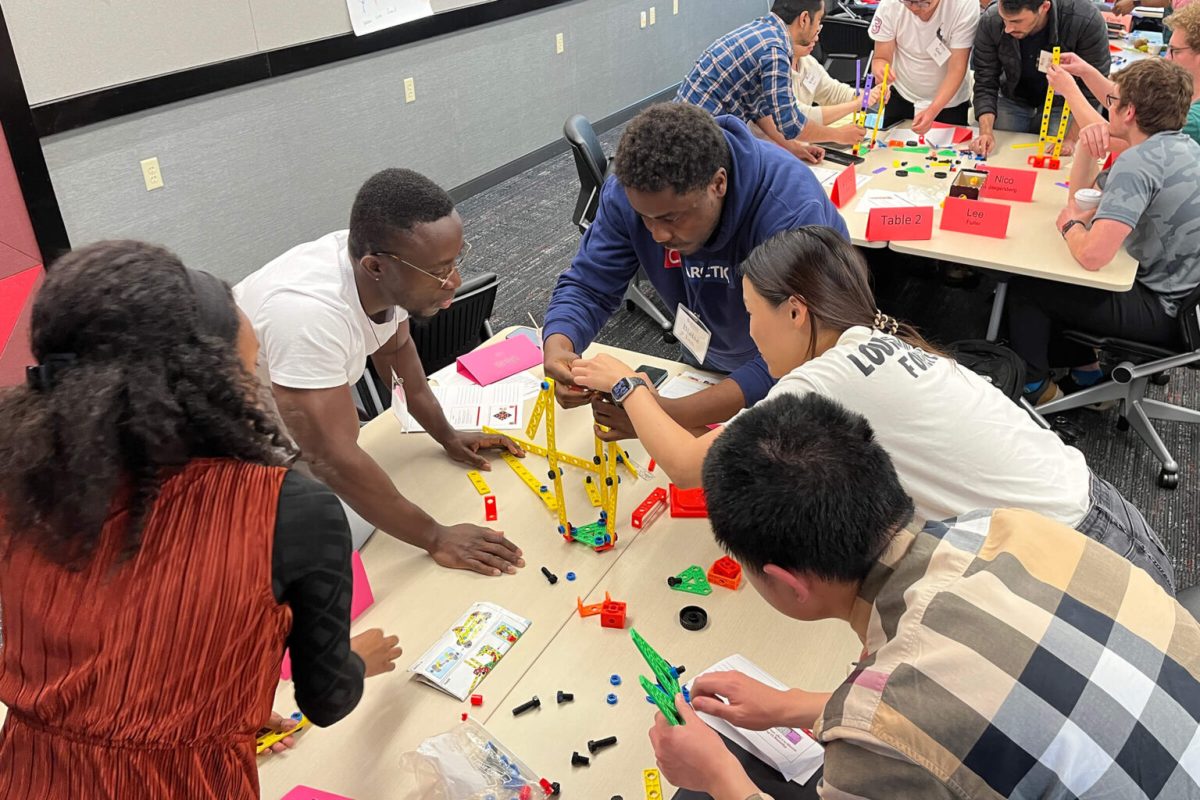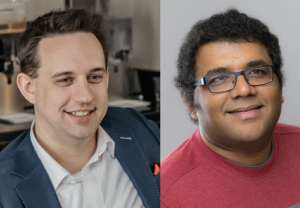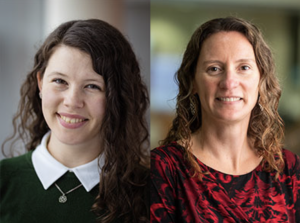
At the University of Wisconsin–Madison, the Technology Entrepreneurship Office (TEO) plays a pivotal role in helping graduate students and faculty translate their research into real-world impact. Through programs like WARF Accelerator, Discovery to Product (D2P), and the Morgridge Entrepreneurial Bootcamp (MEB), students gain the tools, mentorship, and confidence to explore commercialization pathways. We interviewed graduate students and their faculty advisors about two different success stories to better understand how their startup journeys have shaped their careers, research, and perspectives.

Phill Huss and Vatsan Raman are members of Synpha Biosciences, a startup born from academic research and nurtured by UW–Madison’s vibrant innovation ecosystem. They shared their experience navigating the long journey of translating academic research into real-world clinical solutions, and the challenge of learning commercial concepts such as product-market fit, regulatory strategy, and how to communicate value beyond the lab.

Amani Gillette and Melissa Skala are the creators of SeLight, LLC, another startup developed with the help of UW-Madison’s biotech entrepreneurship ecosystem. Focused on enhancing CAR T cell therapy by using advanced imaging technology to assess cell health before manufacturing, SeLight, LLC demonstrates how academic research can translate into life-changing clinical innovations with support from a strong campus startup network.
Graduate Student Responses
What have you learned from your startup experience?
Amani: I have learned a lot about how industry approaches problems and about the complexity of getting things off the ground, as well as how lucky we are to be doing this in Madison, which has an amazing start-up ecosystem and support network.
Phil: Our startup experience has really informed me on the (long) process for translating academic ideas to something that is relevant to patients in the real world. Science in academia is a foundation for real-world solutions, but building that up to something that can be used clinically takes a lot of work and a lot of time. At UW–Madison I was fortunate to have a PI (Vatsan) who was willing to go down that road with me. I also had the benefit of engaging with incredible mentors and entrepreneurial programs like WARF Accelerator, D2P, and MEB that helped me make that transition and understand commercial concepts I hadn’t really thought about at the bench, like product-market fit, regulatory strategy, and how to communicate value to non-academic audiences—which is something I definitely still work on.
How has it shaped your career goals (academic or industry)?
Amani: It has helped me gain a better understanding of what aspects of industry and what aspects of academia I enjoy, which I know will be critical in future career decisions, as I now have a clearer idea of what to look for to feel fulfilled in future roles.
Phil: When it comes down to it I pursued “the startup option” because it was simply the most efficient way to determine if my graduate work could be translated to something that was clinically relevant. While I remain passionate about basic science, I now see translational impact and commercialization as core components of any project and part of my long-term goals, and I’m committed to work that bridges innovation and application.
What are you doing now that wouldn’t have been possible without the startup experience opportunity?
Amani: After joining the Madison start-up ecosystem, I have been able to create a significantly larger network of support and have had the opportunity to interact with a broader range of individuals, learning about different roles in both industry and academia. I’ve also learned a ton about entrepreneurship and grant writing, which will both be invaluable skills moving forward.
Phil: Right now, continuing development and commercialization of my doctoral work. Certainly without UW–Madison’s entrepreneurial support I wouldn’t have known how to take early-stage technology and start moving it towards a viable product. I’m doing things I never envisioned when I started graduate school, like navigating SBIR grants, creating pitch decks, and having conversations with investors. That foundation that UW-Madison provided has been crucial in helping me keep the project alive beyond the lab and begin positioning it for real-world deployment.
Faculty Responses
How does having a startup associated with your lab benefit your research goals?
Melissa: The startup helps us focus on translational goals, and builds our network so that we are aware of other needs in the industry. It’s important to hear feedback from people who have different perspectives, and the startup helps us find and engage with a variety of people.
Vatsan: In my lab, every research project bridges fundamental science and real-world applications. We take a use-inspired approach to basic science—combining a deep curiosity about how biological systems work with the goal of solving meaningful societal challenges. This dual focus ensures that our work not only advances scientific knowledge but also has tangible benefits for society. For example, we investigate how changes in a protein’s sequence affect its function. That’s the basic science question. From an application perspective, we explore ways to engineer proteins to have new capabilities. For instance, we design proteins to detect environmental contaminants.
What encouraged you to have your graduate student(s) participate in a startup?
Melissa: Amani was a postdoc when she became interested in running the startup, and I like to support the interests of people in my lab. People do amazing things when they’re curious, so it’s good to support them when they find a passion.
Vatsan: I’ve always believed that the full potential of scientific research is realized when discoveries make their way out of the lab and into the world. Encouraging my graduate students to participate in a startup stems from this belief. When students are deeply involved in the development of a new technology, they are often best positioned to translate it into real-world impact. Startups offer an unparalleled opportunity for them to learn how to turn ideas into products, navigate real-world constraints, and understand the broader ecosystem of innovation—skills that complement their scientific training. Beyond that, I see entrepreneurship as a powerful way to empower students. It encourages independent thinking, resilience, and a bias toward action—qualities that are valuable in any career path, whether in academia, industry, or startups.
What is the benefit of allowing your graduate student(s) to pursue a startup, and how has it positively impacted your research and broader UW community?
Melissa: It’s beneficial to support independence in trainees, because it usually leads to innovative solutions and momentum, which is important to make progress. I have learned from Amani’s journey as an entrepreneur, as she asks more questions and harder questions as she embeds herself in new communities. It’s been a wonderful way to grow and learn.
Vatsan: Encouraging students to pursue startups has sharpened our research and accelerated their growth. They gain real agency—driving the project, meeting customers, and making key decisions. In many ways, they lead the effort, and I learn from them. These experiences make them more entrepreneurial and mission-driven, and they bring back insights that strengthen our science. More broadly, this mindset contributes to UW’s innovation ecosystem, showing that our discoveries don’t just stay in the lab, but go on to solve real-world problems. WARF and D2P have played a crucial role in making this possible.
The journeys of Synpha Biosciences and SeLight are a testament to the power of combining academic rigor with entrepreneurial ambition. Thanks to the support of UW–Madison’s Technology Entrepreneurship Office and affiliated programs, graduate students like Amani and Phil are not only advancing their research, but also bringing meaningful innovations closer to the people who need them. Their stories highlight how fostering curiosity, independence, and real-world applications can transform both careers and communities.
Written by: Jen Fenton